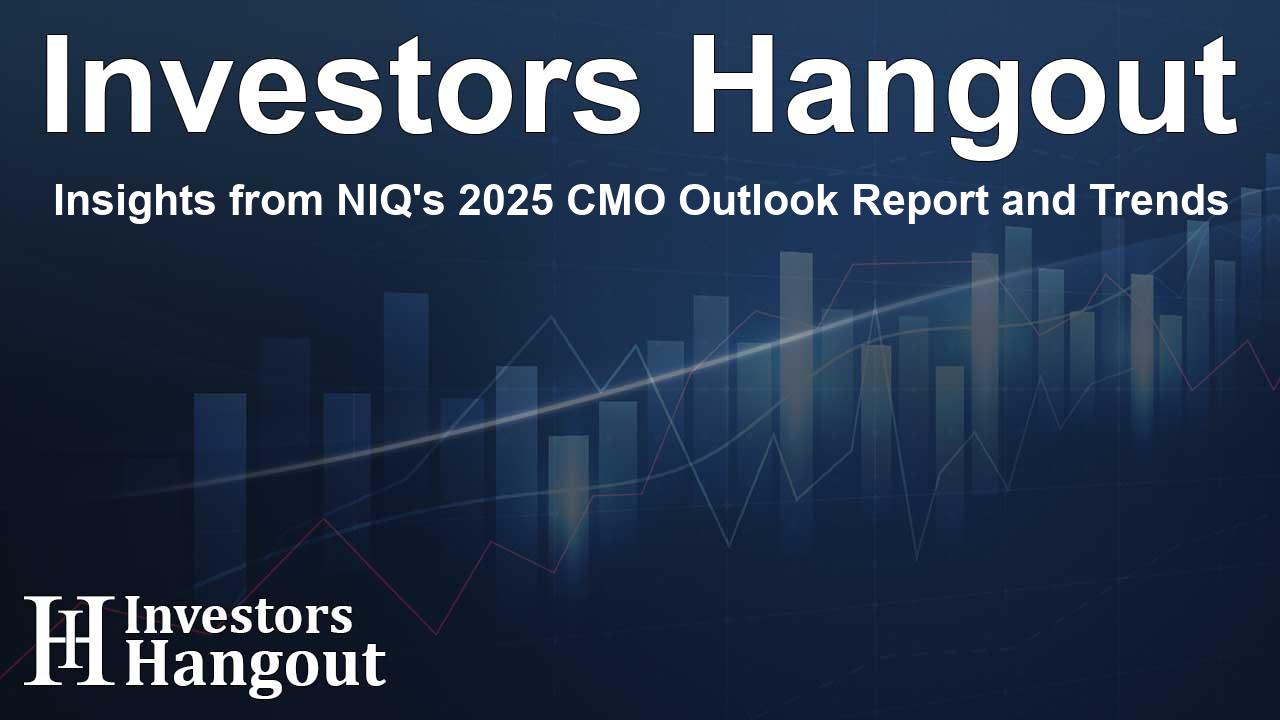Insights from NIQ's 2025 CMO Outlook Report and Trends

NIQ's Annual CMO Outlook Report Highlights Key Trends
NIQ, a prominent leader in consumer intelligence, has unveiled its anticipated annual CMO Outlook report. This insightful publication focuses on the evolving priorities of marketing leaders worldwide as they plan for the unique challenges and opportunities of 2025. One of the most significant themes this year is the integration of Artificial Intelligence (AI) into marketing strategies, reflecting its increasing importance in decision-making processes.
Understanding Consumer Behavior Amid Economic Challenges
Today's consumers are grappling with high food and utility costs, a trend that has caused a shift in spending patterns, particularly in the consumer packaged goods (CPG) and retail sectors. Despite these challenges, the CMO Outlook report suggests that this environment presents unique opportunities for strategic marketing growth. Marketers are beginning to recognize that finding value and savings for consumers can be a pathway to nurturing stronger brand loyalty.
Optimism in Marketing Leadership
Despite the challenges reported, optimism remains robust among marketing leaders. An impressive 78% of these leaders believe they will be in a stronger position in three years. Although there's a slight decline in the belief that marketing is crucial for immediate sales targets—down to 56% from 64%—leaders are increasingly focused on the long-term benefits of brand building. The data also shows that while only 60% of marketing professionals find it easy to justify their investments, confidence in brand investments is rising, increasing to 44% from 41% in the previous year.
Marta Cyhan-Bowles' Insights on AI in Marketing
In discussing the report's outcomes, Marta Cyhan-Bowles, NIQ's Chief Communications Officer and Global Head of Marketing, emphasized the pivotal role of AI in the future of marketing. "The future of marketing is going to be AI-led. Generative AI (GenAI) is becoming a fundamental aspect of our marketing strategies, enhancing everything from customer interaction to data analysis," said Cyhan-Bowles. This statement illustrates how AI not only aids in immediate marketing efforts but also transforms how marketers approach various challenges.
2025 Marketing Trends Shaping Strategies
The report identifies several pivotal trends that will influence marketing decisions going forward:
- AI in Marketing Functions: The integration of AI has become more prevalent, with 72% of senior marketers using GenAI for content creation and 67% for brand health evaluations. This trend underscores AI's capability to enhance marketing functions across the board.
- Rising Confidence in Data-Driven Insights: A staggering 81% of marketers are leveraging data to track their performance, with many reporting increased confidence in their data capabilities. Nevertheless, some continue to face challenges in unifying data from multiple sources, highlighting a demand for advanced AI tools.
- Health of the Marketing Function: The CMO Outlook Index demonstrates a positive shift in the marketing landscape, particularly in Europe, where collaboration with executive leadership has improved, driven largely by the adoption of AI.
- Enhanced Customer Understanding: Marketers are using AI to better understand consumer preferences and streamline product development, further bridging the gap between businesses and their customers.
- Cross-Departmental Collaboration: Effective dialogue between marketing teams and finance departments is crucial. By aligning these areas, marketers hope to improve investment strategies and maximize the potential of AI solutions.
Why These Trends Are Crucial for 2025
The insights drawn from the CMO Outlook report reveal the need for marketers to adapt and evolve alongside technological advancements and shifting consumer expectations. The focus on AI is not just a trend but a vital component for future success. Some key areas for attention in 2025 include:
- Establishing actionable marketing priorities and tapping into emerging opportunities.
- Understanding AI's unique impact on marketing functions.
- Fostering trust in AI to inform and guide future marketing strategies.
Frequently Asked Questions
What does the CMO Outlook report highlight about AI?
The report emphasizes AI's central role in marketing, aiding strategic functions and enhancing consumer insights.
How optimistic are marketing leaders about future growth?
78% of marketing leaders expect to be in a stronger position within three years despite current economic challenges.
What are key marketing strategies for 2025?
Strategies focus on leveraging AI, enhancing cross-department collaboration, and utilizing data for decision-making.
How is customer understanding evolving with AI?
AI is helping marketers gain deeper insights into consumer behavior, leading to better-targeted marketing efforts.
What challenges do marketers face in data integration?
A significant number of marketers struggle to connect data from various sources, indicating a need for sophisticated AI tools.
About The Author
Contact Evelyn Baker privately here. Or send an email with ATTN: Evelyn Baker as the subject to contact@investorshangout.com.
About Investors Hangout
Investors Hangout is a leading online stock forum for financial discussion and learning, offering a wide range of free tools and resources. It draws in traders of all levels, who exchange market knowledge, investigate trading tactics, and keep an eye on industry developments in real time. Featuring financial articles, stock message boards, quotes, charts, company profiles, and live news updates. Through cooperative learning and a wealth of informational resources, it helps users from novices creating their first portfolios to experts honing their techniques. Join Investors Hangout today: https://investorshangout.com/
The content of this article is based on factual, publicly available information and does not represent legal, financial, or investment advice. Investors Hangout does not offer financial advice, and the author is not a licensed financial advisor. Consult a qualified advisor before making any financial or investment decisions based on this article. This article should not be considered advice to purchase, sell, or hold any securities or other investments. If any of the material provided here is inaccurate, please contact us for corrections.
